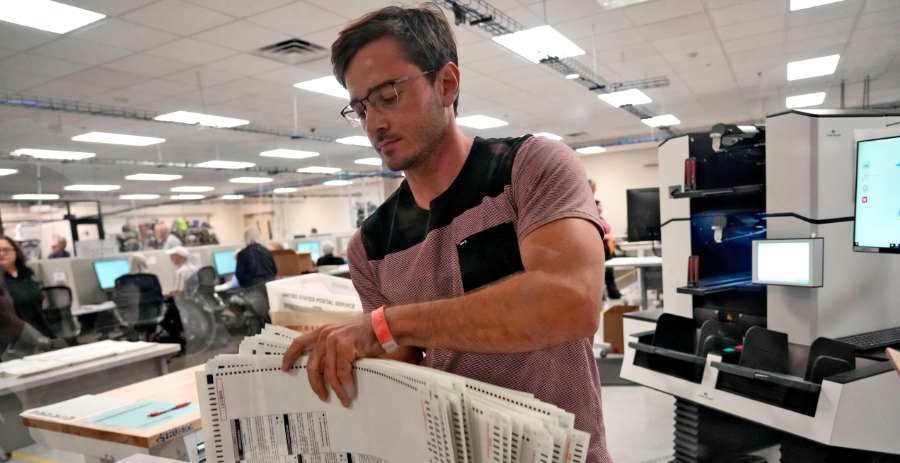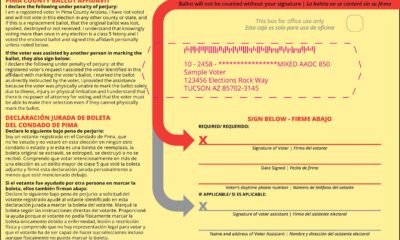2024 Election News
AZ’s Election Law Overhaul Slashes Federal Deadline Compliance Time

A legal battle recently erupted in the Arizona Supreme Court regarding voters’ rights to correct signatures on their ballots. The court’s decision upheld a two-day reduction in the time allowed for “curing” ballots, a part of broader legislative changes aimed at streamlining the election process.
These changes, enacted by both Democratic and Republican lawmakers earlier this year, were intended to finalize vote counting and address potential legal disputes before Arizona’s electoral votes are tallied. With the hope that each party’s candidate would emerge victorious, legislators sought to prevent a repeat of previous election controversies.
Central to the new law is a shift in the deadline for voters to rectify ballot issues. This deadline was contested by organizations such as the American Civil Liberties Union and the League of United Latin American Citizens. However, this adjustment is part of a larger effort to mitigate election disputes similar to the contentious aftermath of the 2020 presidential election.
Moreover, the legislation enacted in February has significant implications beyond just the curing period. Key alterations include:
- The advancement of the state primary election to late July.
- A reduction in the time counties have to confirm vote counts.
- An earlier deadline for the statewide canvass.
- The ability to initiate recounts before the statewide canvass is complete.
These revisions aim to ensure that Arizona has a clear role in the fast-approaching presidential race. U.S. Congress addressed weaknesses in the Electoral Count Act of 1887, leading to clarifications about the roles of governors and Congress in certifying electors. Notably, the law now specifies that only the governor can submit a state’s slate of electoral votes.
In the wake of the 2020 election, where competing elector slates emerged, this updated federal law defines objection protocols and clarifies the vice president’s administrative role in the electoral process. Arizona felt the ripple effects of these changes, which impose stricter deadlines for submitting election results.
This year, states must certify results by December 11. The revised legislation eliminates previous allowances for post-election activities, emphasizing punctuality to align with the Electoral College’s meeting six days later.
Arizona’s election laws now also stipulate an automatic recount if the vote margin is 0.5%, doubling the previous threshold. Given the narrow victory margin in 2020, concerns about similar scenarios have prompted lawmakers to act decisively.
Recent adjustments have placed counties on a deadline to complete their canvasses by November 21, followed by the statewide canvass just days later. With elections drawing near, these tightened timelines also mean less preparation time for officials from each party to finalize ballots.
Overall, these legislative changes reflect a significant shift in Arizona’s electoral framework, aiming to enhance accountability and efficiency as the state gears up for the upcoming presidential election.


















